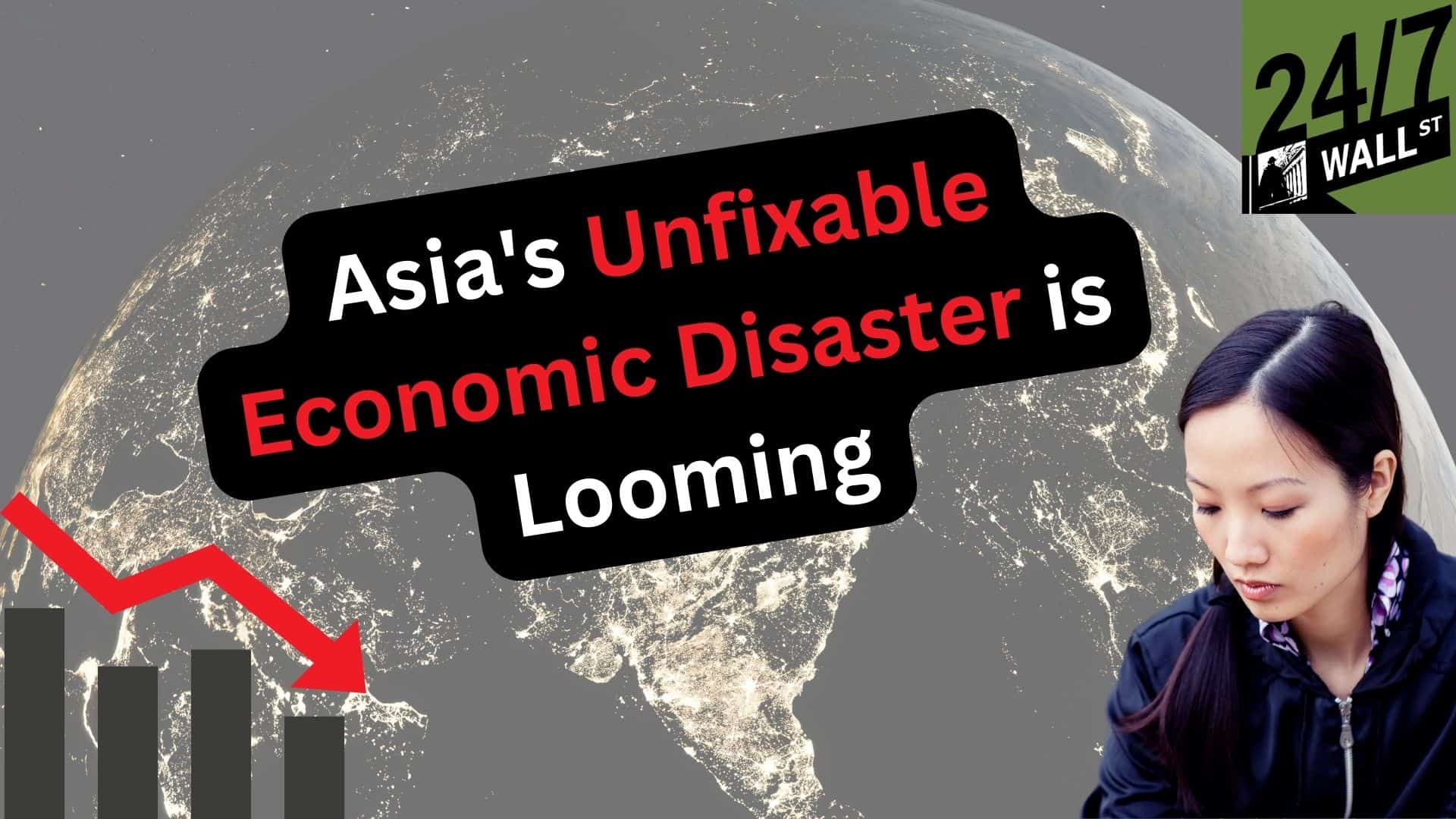
Demographics Are Destiny
Austin Smith and Michael Muir discuss the long-term population decline in Southeast Asian countries, focusing on the challenges and potential solutions. They highlight the severe issues with housing affordability, hyper-competitive education systems, and the dominance of mega-corporations like chaebols in South Korea. These factors create a high-pressure environment that discourages young families from having children. The discussion also touches on the controversial idea of migration as a potential solution to this demographic crisis.
Only One Industry May Survive It Collapse
A major collapse in population could hurt literally every industry, except artificial intelligence. The demand for AI is only going to increase, especially as the need for productivity growth strengthens. A top analyst recently named ‘The Next Nvidia’, at the intersection of mega growth trends and poised to make investors rich. You can access their picks for free by clicking here now.
Transcript:
These trends are happening in these Southeast Asian countries, and I’m just wondering, what are potential solutions here?
What can we do to try and reverse this?
Because these are not short-term trends.
You have to start on these 20 years ago.
And very much when you’re in it, it can almost be unfixable when you get into this downward population spiral.
So what are some of the solutions that these Southeast Asian countries can implement to try and reverse their fertility rate?
Sure.
Well, I mean, these are, as you’ve said, consequences of long term trends.
Some of them are just natural.
Again, we’re seeing them across the world.
Solutions are not easy to come by because some of the barriers to raising a family include housing affordability.
South Korea is particularly problematic.
Hong Kong has one of the most challenging real estate markets in the world.
It’s particularly difficult for younger people of childbearing age to purchase property and have the room to raise a family.
When I lived in South Korea, my apartment was about 100 square feet.
I could not have a dream of raising a family there.
So the affordability of a larger place is very challenging for a family.
So you would need housing reform, which is not easy to come by.
You would need potential incentives because it’s very expensive to raise a child anywhere in the world but in Korea you also have such a hyper competitive society.
And that’s actually one of the consequences of chaebols is that those handful of companies account for about 50 percent of the country’s GDP, but only about 12 percent of the country’s employees.
So if you want to get ahead and have a good life, you need to work for one of those handful of companies.
And that involves starting when you’re very young, a lot of extra tuition.
Of course, that’s not free.
The vast majority of Korean school kids go to school during the day and then they go to their hagwons, private academies afterwards.
I mean, I saw that firsthand.
It’s just an exhausting thing to be a child in South Korea.
It’s not the most pleasant experience, but that’s what they feel like they have to do.
So, again, very expensive.
Housing is a problem.
Education is a problem.
And just the makeup of the Korean economy, which is not going to change anytime soon.
Do you lessen the power of these mega corporations?
Good luck with that.
Another potential solution that’s going to be deeply unpopular in East Asia would be migration, importing working-age people from other countries.
The path to citizenship in South Korea, there isn’t really one unless you marry a Korean.
So I want to make sure that I just heard that our listeners understand that first point, because there’s a couple of dimensions to it, but it is really powerful.
So if South Korea is an extremely competitive economy, so if you want to stand any chance of working for one of these chaebols or these premier organizations, you have to start very, very young.
It’s extremely selective.
It’s hard to succeed that much when you’re also trying to raise a family, which almost makes raising a family structurally a consolation in that economy.
But then there’s a further catch-22 that because it is so competitive and you now have a family, you want your children to maybe have a chance at one of those incredible corporations.
I believe the numbers I’ve seen are that three-quarters of South Korean children attend a hagwon, which is basically what we might know as a tutor or additional schooling to try and prepare them, which then further increases the burden on those families financially and time-wise.
It becomes a pressure cooker.
That’s not just one cause, but it does, I think, further illustrate how you’re in this Catch-22 situation of wanting to succeed, but not being structurally set up to do it because it is so competitive.
Because it is so competitive, it becomes so expensive.
And it is a, you know, I don’t want to say it’s unfulfilling.
Having children is, of course, a very rewarding experience for any parent, but it’s a much more difficult environment to maybe be the type of parent that people want, right?
To maybe enjoy their time with their child as opposed to just what might feel like an assembly line of competition.
In 20 Years, I Haven’t Seen A Cash Back Card This Good
After two decades of reviewing financial products I haven’t seen anything like this. Credit card companies are at war, handing out free rewards and benefits to win the best customers.
A good cash back card can be worth thousands of dollars a year in free money, not to mention other perks like travel, insurance, and access to fancy lounges.
Our top pick today pays up to 5% cash back, a $200 bonus on top, and $0 annual fee. Click here to apply before they stop offering rewards this generous.
Flywheel Publishing has partnered with CardRatings for our coverage of credit card products. Flywheel Publishing and CardRatings may receive a commission from card issuers.
Thank you for reading! Have some feedback for us?
Contact the 24/7 Wall St. editorial team.





